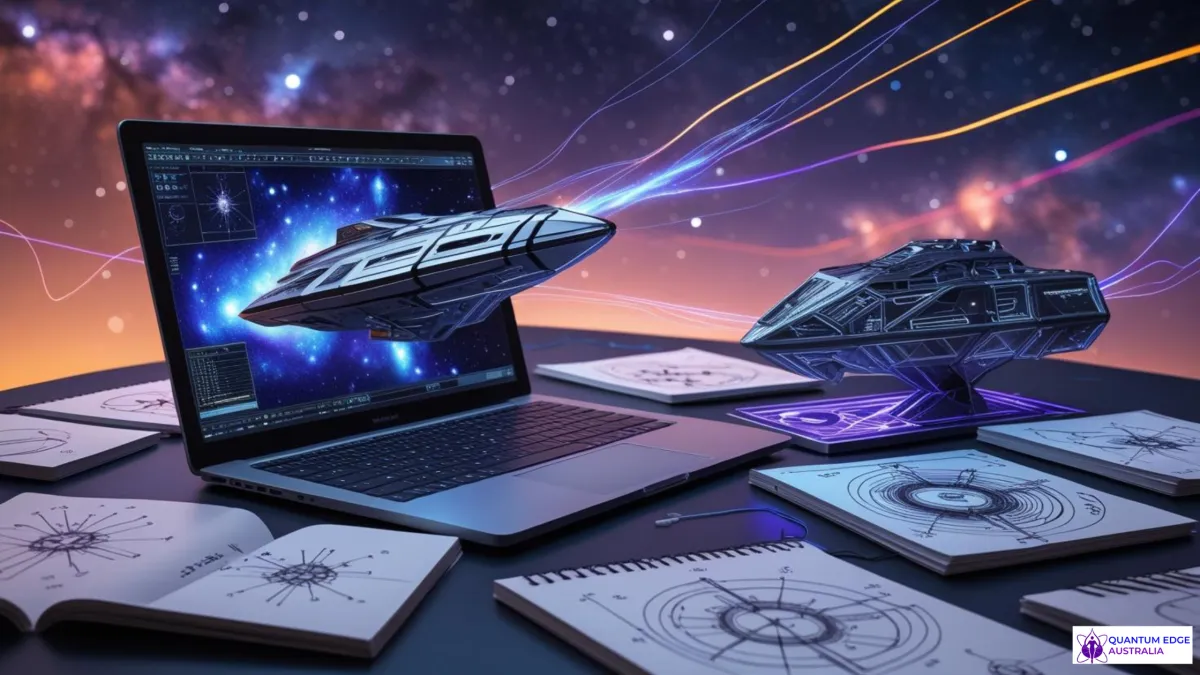
From Vision to Prototype: A Starseed’s Guide to Marketable Product Development
Table Of Contents:
Step 1: Clarify Your Core Concept
Step 3: Choose Your First Prototype Tool
Step 4: Build the Rough Prototype
👉Build your vision—prototype your purpose today
Step 5: Gather Instant Feedback
Step 6: Iterate with Intention
Introduction
Every starseed inventor starts with a spark—a cosmic download of a product that could shift paradigms. Yet the journey from that ethereal vision to something you can hold in your hands can feel daunting.
In this guide, you’ll discover how to take your first step in marketable product development, moving from imagination to a basic prototype that communicates purpose as clearly as it channels your unique vision.
Step 1: Clarify Your Core Concept
Before touching tools, distill your cosmic insight into one clear statement:
“My prototype will [function] to help [who] achieve [benefit].”
This clarity anchors your design. Jot it on a Post-it by your desk or voice-memo it on your phone—whatever keeps your mission top of mind.
Step 2: Sketch for Speed

Grab paper and pen (or a tablet and stylus) and sketch your idea in under five minutes. These scribbles are not final art; they’re the blueprint of a rapid prototyping mindset.
Did You Know?
Rough early sketches—sometimes just pen and paper—help identify usability and design flaws before a dime is spent in development. This fast, low-fidelity “paper prototyping” method has been used by design teams at Microsoft, IBM, and NASA since the 1980s to significantly reduce costs and speed up product iterations
Sources: dnnsoftware.com
Step 3: Choose Your First Prototype Tool
Decide whether to start with:
Cardboard & Foam Core: Ultra-low-cost, zero-tech mockups
3D Printing (FDM/Resin): Precise shapes via local makerspaces
Arduino & Breadboard: Early interactivity for sensing or motion
Your choice depends on function: is it form-first or function-first? For most starseed creators, a mixed-media mockup (cardboard structure + simple electronics) bridges conscious innovation and practicality.
Step 4: Build the Rough Prototype
Set a 60-minute timer, gather your materials, and construct a “looks-like/works-like” model. Resist perfection.

The goal is a tangible conversation piece—not a final product.
👉Build your vision—
prototype your purpose today
Step 5: Gather Instant Feedback
Show your mockup to 2–3 trusted peers (other starseed creators, mentors, or community members).
Ask:
What stands out?
Where is it confusing?
Would they use it?
Document their reactions. These early insights are gold.
Step 6: Iterate with Intention
Use feedback to refine one aspect—shape, interaction, or user flow. Sketch or adjust your CAD, then rebuild or reprint.

Each micro-iteration sharpens your prototype and your clarity.
Step 7: Plan Your Next Move
With a rough prototype and feedback in hand, outline your marketable product development roadmap:
Detailed CAD & material sourcing
Minimum Viable Product (MVP) build
Pilot testing with broader audience
Additional Tips & Common Mistakes
Tip: Use free tools like Tinkercad or Canva for quick digital mockups.
Tip: Document every iteration—photos, notes, voice memos.

Mistake to Avoid: Chasing perfection too early—perfect never ships.
Tip: Leverage our Quantum Innovator’s Toolkit for templates and checklists that streamline each step.
Conclusion
Your cosmic vision deserves to live in the physical world.
By following these first-step guidelines—clarity, sketching, rough prototyping, feedback, iteration—you’re practicing marketable product development that honors both strategy and soul.
🔗 Explore our Quantum Innovator’s Toolkit & Courses
